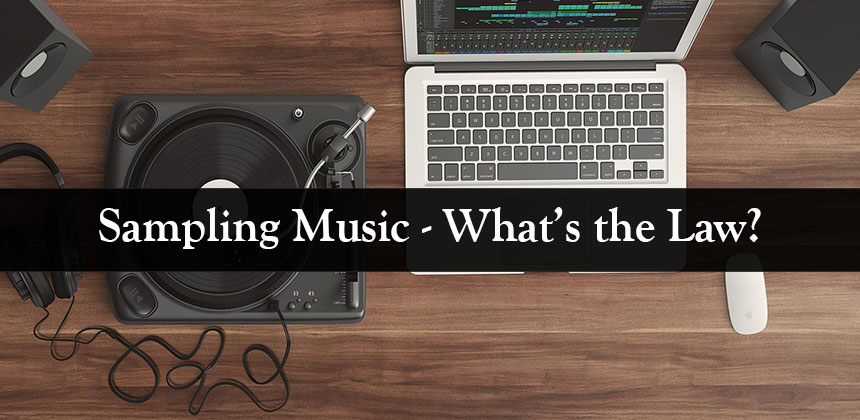
In the music industry, the process of sampling is regularly used by music producers. However, contrary to popular belief, sampling of a copyrighted song without permission from the owner is still illegal. Further contrary to popular belief (and this one might be the biggest shocker), sampling a copyrighted song without permission for use on a non-commercial item (such as a mixtape) is still illegal. If you use samples in your music, it is necessary for you to obtain legal permission to use it. This process is known as sample clearance. If you fail to get the proper permission, you could end up suffering serious consequences.
Music Copyrights: Composition and Recording
In the music law world, music is actually protected by copyright laws on two levels, composition and recording. When you sample someone’s song without their permission, you are violating the copyright on the musical composition and the recording governing the actual song you are sampling from.
Music Composition
Musical Composition refers to the structure of a musical piece. It is the combination of music notes and how they are pieced together to create a new and unique piece which is what the protection governs.
Music Recording
A musical recording is the actual recording of the composition. This is what you actually hear when you listen to a CD or MP3 – the actual music that is able to be heard.
High Cost to Clear Samples
It can often be difficult to obtain sample clearance because of expensive fees associated with music sampling. However, while difficult as it may be, it is necessary to obtain sample clearance if you want to make copies of your music and distribute it to the public. This sampling fee is determined by how much of the sample you want to use and the intended use of the sample in your song. It can also be challenging to reach a music publisher.
Further, because when clearing a sample, because you need to get permission for the copyright on the musical composition and musical recording, a greater difficulty is involved because often times, this is owned by separate owners.
What Happens if I Don’t Get Permission or Clear the Samples?
Choosing to publish music without a sample clearance can ultimately have some severe consequences. If your recording gains significant popularity and is played at clubs or on the radio, you will most likely have to deal with sample clearance from a copyright infringement standpoint. This charge can generally run from $500 to $20,000 per instance of copyright infringement. If it is determined that willful infringement (meaning you intended to use someone else’s copyright and infringe on their rights) was involved, the penalty can be as much as $100,000 per instance of infringement. Aside from this penalty, you may also be asked to recall your albums, destroy them, or pay the infringing party some or all of the profits generated by your song.
Sampling Music – What’s the Bottom Line?
Despite popular belief and practice, sampling someone else’s songs without their permission is illegal. This is an act that can have serious consequences for those who do not obey the law. By sampling music illegally, you ultimately risk being charged a significant fine.
For more information about how you can legally sample music and avoid being charged with copyright infringement, contact us.
—
Julian Cordero is an Attorney, Music Producer, and Entrepreneur. Oh and he blogs too! Julian is licensed to practice law in New York and is the Managing Member of Cordero Law LLC, a New York City based law firm focusing on Business Law, Entertainment Law, and Intellectual Property.
